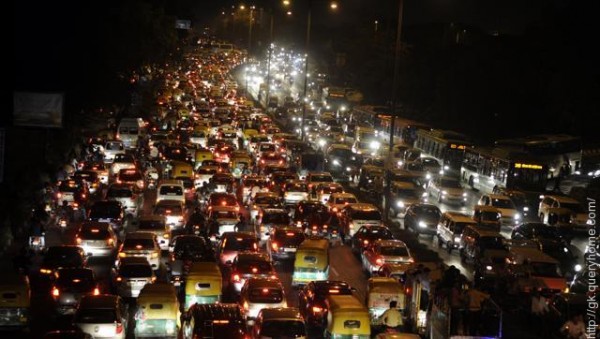DELHI and Its ODD-EVEN TRAFFIC RULES
The Question is about the recent Odd-Even Traffic Rules of Delhi?
The Question posed on Delhi's Odd-Even Traffic Rules
Well, you have Beijing, Paris, Mexico City, and Bogotá that may have rules some' similar to the Odd-Even Traffic rules that Delhi is proposing.
The new Odd-Even rule proposed by the Delhi Govt. clearly seems like a knee-jerk reaction trying to address the serious traffic and pollution problems of the city. Surely one with little planning or forethought to tackle the real Delhi problems . . .

Thanks to the ill thought out and desperate Odd-Even Traffic plans of Delhi, here are a few questions, in general, that are on the minds of the Delhi public:
-
Where is the public transport to handle this volume of new users? Considering that the national capital is still battling poor connectivity, it is unclear to what extent people can rely on public transport when not travelling by their private vehicles.
-
How are lower-income households to deal with auto and taxi costs? The metro doesn't yet connect all parts of Delhi; for thousands of lower-income families, who may currently be using two-wheelers, this solution could devastate their livelyhood significantly.
-
How does the government plan to ensure these rules are followed? Do they have the manpower and bandwidth to monitor and police this massive traffic policing move?
-
The AAP government has always stood against corruption. But, here is what they need to be concerned about:
- Corruption might rise as a fallout of the new road policy where people might start changing registration numbers of existing second cars,
- Taxis, autos and cab operators might raise their rates,
- People might start getting taxi licenses for private vehicles, and
- People might resort to bribing the traffic police to get away without prosecution.
-
What if there is a medical emergency?
A person driving a patient in medical trauma in a life and death situation, may be able to prove the urgency; but will be delayed and held back in proving the emergency and in the bargain not be able to save the life of the traumatic patient, 'cause he could not get to the hospital in time.
-
Has the Delhi government chalked out a well-defined plan of adding vehicles to public transport before 1 January 2016, when the odd/even number policy will be implemented?
-
How will the government ensure that the public transport, which is being added in place of private transport, is reducing emissions and not just adding more to the pollution levels?
-
There will be a number of concerns, which will rise for women safety as people will be more dependent on public transport during late hours of the night.
-
What about the people who go out at late hours and are not able to return before midnight, after whih it technically is the next day? That means they will be subjected to prosecution as they will still be driving the car with a number which is not permitted to be out on road on that day.
-
Private companies will then also need to rejig their conveyance policies. Also, they will need to ensure putting a mechanism in place where people who might arrive late due to the public transport are not subjected to deciplinary action.
-
A significant chunk of the upper-income population of Delhi use drivers. What happens as a fallout of this policy? Do drivers lose their jobs or are salaries renegotiated?
-
What happens if higher-income families compensate for the new rules by buying a second vehicle with even or odd numbers as required?
-
Under the government norms, a number of people have turned to CNG vehicles, which means their emission footprint is significantly lower than Non-CNG vehicles. Is it fair that they should also be subjected to the new policy?
-
One major concern is about the period of time for which the norms will be in implemented. Talking about the policies across the world, cities like Paris have implemented such rules for a limited period of time.
- Also if the government is planning to follow cities like Beijing , then it is evident that there has been extensive pre-planning prior to such implementations.
- But, such a rigorous effort is missing in Delhi and the Delhi government.

Maybe emulating some of the comprehensive smart traffic solutions that Singapore has implemented might be a better idea for Delhi.
- Not only would it earn some additional income for the Delhi exchequer,
- It would put in place a fair set of traffic policies and the city will end up more clean & green as well, and
- It would of course get the current crazy Delhi traffic well under control in short order.
However, before taking any drastic traffic and emissions control measures, the peoples of Delhi need a convenient, comfortable, and viable means of public transport - maybe not just one, but have several options that fit the specific needs of the masses.
While Delhi Metro has been much lauded, it still is too little, too late for a city
-
bursting at its seems with rapid population growth, and
-
coming to a sad screeching halt with its traffic and pollution issues.
